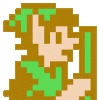Even outside of the legality of the act, consider it from the point of view of a player. Say Joe likes Super Mario Bros. He's played it before, he's got the original NES version plus everything that Nintendo has done in the way of remakes and re-releases. He can beat it on a speedrun in 5 minutes flat. Now he wants to play something else, something similar but new. So he goes to Google Play (or any other service) and searches for Super Mario clone, because that's the nearest search term he can think of. Now he has to wade through entry after entry of literal clones, trying to find what he is actually looking for: a spiritual clone, rather than a literal clone. Granted, Google Play isn't so big yet that there are entries upon entries, but take it through its eventual progression and you can see that as more and more games are added, it becomes more difficult to find one among the crowd.
One of the largest problems facing indie and small developers on distribution platforms like Google Play, and pretty much in general, has been obtaining visibility in such a noisy and crowded market. The signal-to-noise ratio on some of those platforms is very low, at least partially because of so many direct clones being pushed. Releasing yet another literal clone, regardless of if you do so for free or not, just adds one more bit of clutter making the problem worse for everyone else, without any of the redeeming benefits of it being an original game that brings something new to the table. You're just adding noise, with no signal.
Now, you're proud of what you have accomplished, and you should be. Making even a literal clone of something is an accomplishment. But it's the kind of accomplishment that you share with your friends and family, and maybe on a personal blog or facebook or twitter; it is not the kind of thing that you share on a distribution service such as Google Play or Steam or anything else where you provide no benefit to the community at large in doing so, and in fact make the service just that much worse for the people that are trying to release original and new works.








